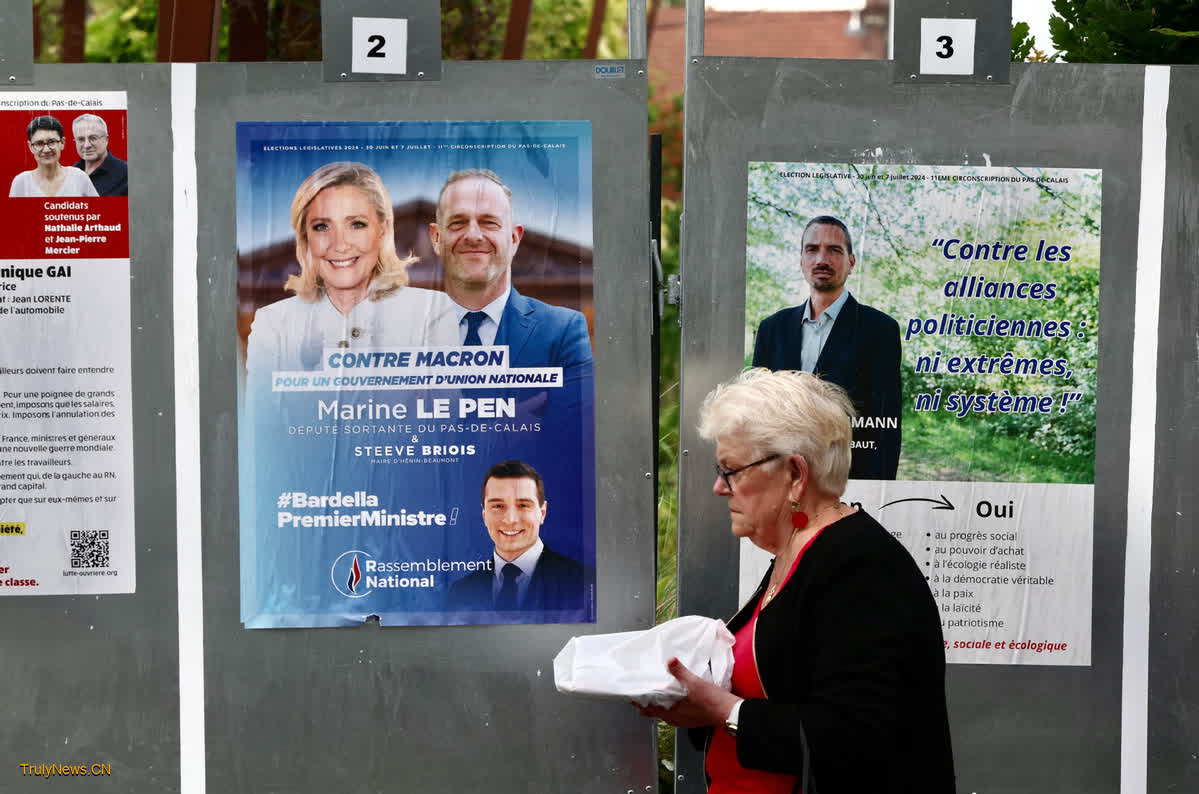Voters in France began the lengthy process of choosing lawmakers to sit in the country’s 577-seat National Assembly on Sunday, with far-right parties tipped to make huge gains.
Voter turnout in the French parliamentary election was the highest in 40 years. At 5 pm local time, turnout stood at 59.39 percent, 20 points higher than 2022, BBC reported.
The election, which concludes with a second round of voting next Sunday, was called by France’s President Emmanuel Macron after far-right parties did well in European Parliament elections between June 6 and June 9.
Macron could have waited three more years before triggering the vote but essentially decided to call voters’ bluff, banking on the notion that many who supported far-right candidates in the European poll wanted to send the government a wake-up call and would not support extremists in domestic elections.
It remains to be seen whether his reasoning was sound.
Shortly before polls opened at 6 am, the National Rally party, or RN, led by Marine Le Pen and Jordan Bardella was ahead in opinion polls. Throughout the 20-day election campaign, RN focused on immigration and crime, and promised tax cuts to people hit by France’s cost-of-living crisis.
Bardella, who is aiming to become the country’s next prime minister, said he expects his anti-European Union, anti-immigration party to win at least 289 seats. Le Pen agreed, telling Reuters: “We are going to win an absolute majority.”
RN’s main opponent was a hastily created left-wing alliance called the New Popular Front, which also said it has hopes of winning the election and forming the next government.
Macron himself was not up for reelection but his centrist alliance Together for the Republic was widely expected to lose seats and finish a distant third.
Agence France-Presse said the election’s high stakes would likely translate into a high voter turnout among the country’s 49.5 million eligible voters.
Francois Hollande, a former president of France who was once Macron’s mentor but who is now a member of the New Popular Front, said: “The Macron era is over.”
Cynthia Justine, a 44-year-old voter, told the AP people are desperate for change. “People don’t like what has been happening,” she said. “People feel they’ve lost a lot in recent years. People are angry. I am angry.”
However, with Macron set to stay on as president until his term ends in 2027, a victory for RN could mean France is set for a period of turbulence, with the country’s top two politicians at loggerheads with each other.
Reuters said a victory for RN could also mean a “sea change” for the EU. And it said it might mean a scaling-back of France’s support for Ukraine in the Russia-Ukraine conflict because Le Pen has a long history of pro-Russian sentiment.
The outcome of the election will be known on July 7.
earle@mail.chinadailyuk.com
